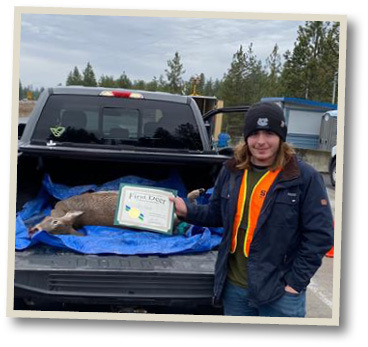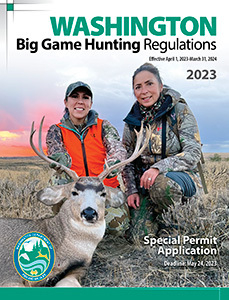WDFW Check Stations
Hunters please be advised:
The times and locations of check stations are subject to change. Please contact your local WDFW office to verify staff availability at check stations.
Why should I go to a check station?
Check stations allow biologists to collect important biological information that informs management. This may include teeth to determine the age structure of a population, detailed information about the size of bucks being harvested, tissue samples to test for diseases like chronic wasting disease, and body condition scores for harvested animals. Aside from collecting biological information, check stations allow biologists an opportunity to interact with the community and hunters, answer questions, and to get immediate feedback on how the season is going.
2023 Check Station Locations
The times and locations of check stations are subject to change. Please visit


